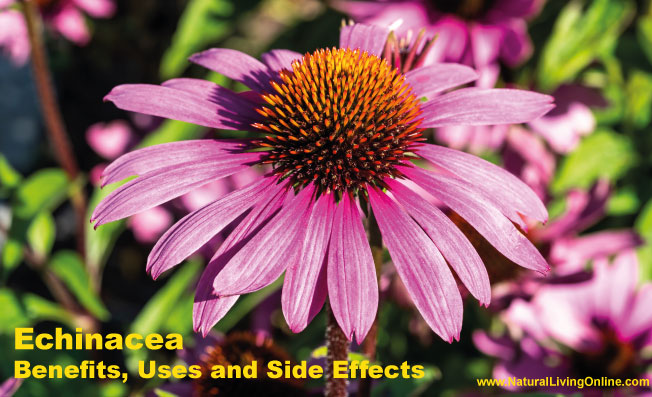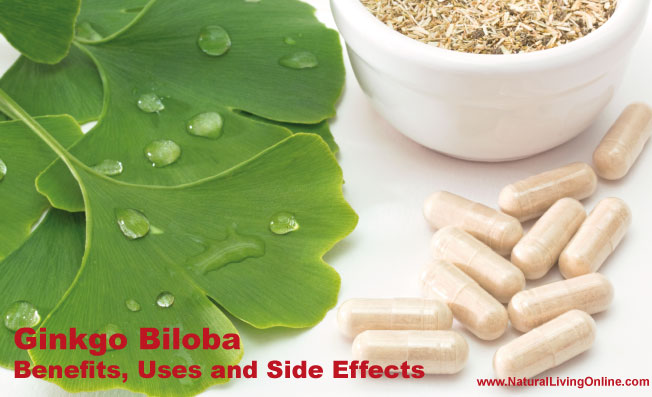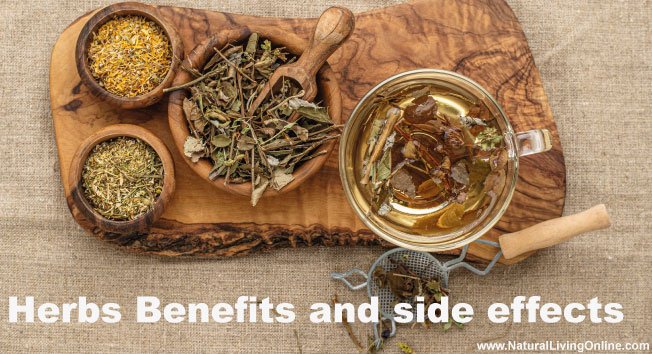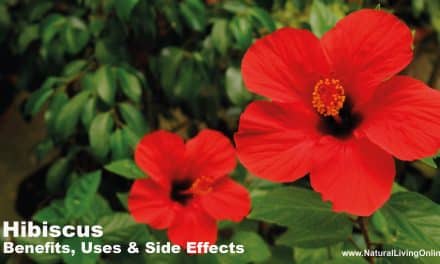Echinacea is a genus of flowering plants in the daisy family, Asteraceae. It has nine species that have been used medicinally for centuries by Native Americans to treat colds and infections. Traditionally, Echinacea was made into a tea or tincture and taken orally to boost the immune system. Today, it can be found in many forms, including capsules, tinctures, teas, and extracts.
The most popular species of Echinacea is Echinacea purpurea (purple coneflower). It contains compounds called phenols that may have antiviral and antimicrobial properties. Several scientific studies have shown that Echinacea can help reduce the severity and duration of colds, as well as reduce the risk of getting a cold in the first place. It may also help relieve symptoms of upper respiratory tract infections such as sore throat and sinusitis.
In addition to its immune-boosting effects, Echinacea is believed to have other medicinal benefits. Research suggests that it may be effective in treating certain skin conditions such as eczema, psoriasis and acne. It is also thought to possess anti-inflammatory and antioxidant properties that may help to protect against oxidative damage to the body’s cells.
Overall, Echinacea is a promising natural remedy for colds, infections, and other health conditions. While more research is needed to fully understand its potential benefits, it appears to be a safe and effective way to strengthen the body’s defenses and promote overall health.
Botanical Profile
Botanical Name: Echinacea purpurea
Common Names: Purple coneflower, black sampson
Plant Family: Asteraceae
Countries of origin: North America
Parts Used as medicine: Leaves, flowers and roots
Therapeutic Properties: Antiviral, antimicrobial, anti-inflammatory, antioxidant
Contraindications: Pregnant and breastfeeding women should not take Echinacea
Nutrition: Vitamin C, vitamin A, copper, zinc, selenium and iron. It also contains polysaccharides and flavonoids which have a range of beneficial properties.
Echinacea Health Benefits
Common cold
One of the most widely accepted benefits of Echinacea is that it can help reduce the severity and duration of colds. Several scientific studies have reported that taking Echinacea at the first signs of a cold can shorten its duration and lessen symptoms such as sore throat and stuffy nose. It may also be effective in reducing the risk of getting a cold in the first place.
The antiviral and antimicrobial properties of Echinacea appear to be responsible for its immune-boosting effects. It is believed that by stimulating certain white blood cells, known as macrophages, it helps the body fight off infection more quickly.
Eczema
Eczema is a common skin condition characterized by dry, itchy and inflamed skin. Several studies have reported that taking Echinacea orally can help reduce the symptoms of eczema. This is thought to be due to its anti-inflammatory and antioxidant properties, which can help soothe irritated skin and protect it from damage.
In addition, Echinacea may help boost the body’s natural ability to fight off infection. This is important for people with eczema, as they often suffer from secondary bacterial infections caused by scratching and open sores due to their dry skin.
Upper respiratory infections
Upper respiratory tract infections, such as sore throat and sinusitis, can be very painful and uncomfortable. Some studies have found that taking Echinacea can help reduce the symptoms of such infections. This is thought to be due to its antimicrobial properties, which may help fight off the virus or bacteria responsible for causing the infection.
Immunity
The immune-boosting effects of Echinacea are well documented. Numerous studies have reported that taking the herb on a regular basis can help strengthen the body’s natural defenses and reduce the risk of infection. This is thought to be due to its ability to stimulate macrophages, which are white blood cells responsible for fighting off invading pathogens.
Overall, the studies suggest that Echinacea is a safe and effective way to strengthen the body’s natural defenses against infection. It may also be effective in reducing symptoms of colds, upper respiratory infections, eczema, and other health conditions. However, more research is needed to fully understand its potential benefits. Consult with a healthcare provider before taking any herbal supplements.
Side effects of Echinacea
Although Echinacea is generally considered safe, it is important to note that some people may experience side effects. These can include nausea, vomiting, headaches, rashes and stomach upset. In rare cases, Echinacea may also trigger an allergic reaction. If you experience any of these symptoms after taking Echinacea, stop using it immediately and consult with a healthcare provider. Pregnant and breastfeeding women should not take Echinacea, as its safety in these populations has not been established.
It is also important to note that some people may be allergic to certain species of Echinacea, including E. purpurea and E. angustifolia, so it is best to consult with a doctor before taking any herbal supplement.
Frequently Asked Questions
Why should you not take echinacea everyday?
Echinacea is generally considered safe, but it should not be taken on a daily basis for prolonged periods of time. Taking Echinacea regularly can reduce the herb’s effectiveness and may lead to side effects such as nausea, vomiting, headaches and rashes.
What should echinacea not be taken with?
Echinacea should not be taken with other herbs or medications that have a sedative effect, including valerian, kava and St. John’s Wort. Additionally, Echinacea should not be taken with immunosuppressants such as cyclosporine and tacrolimus, as this may lead to an increased risk of side effects.
What is an adverse effect of echinacea?
Common side effects of Echinacea include nausea, vomiting, headaches, rashes and stomach upset. In rare cases, it may also trigger a severe allergic reaction. If you experience any of these symptoms after taking Echinacea, stop using the herb immediately and consult a healthcare provider.
Who shouldn’t take Echinacea?
Pregnant and breastfeeding women should avoid taking Echinacea, as its safety in these populations has not been established. Additionally, people with allergies to certain species of Echinacea (such as E. purpurea and E. angustifolia) should not take the herb.
Is echinacea hard on the liver?
Echinacea has not been known to cause any serious liver damage, however it is important to consult with a healthcare provider prior to taking any supplements.
Does echinacea affect sleep?
There is no evidence that suggests Echinacea has an effect on sleep. However, some people may experience mild sedative effects due to the herb’s ability to reduce inflammation and anxiety. If you experience any adverse side effects after taking Echinacea, stop using it immediately and consult a healthcare provider.
References
1. Aiello, E., & Brukner, P. (2009). Herbal Medicine for Upper Respiratory Tract Infection: A Systematic Review and Meta-Analysis of Randomised Controlled Trials. Evidence Based Complementary and Alternative Medicine, 6(1), 61–67.
2. Bode, A., & Bode, J. (2004). Echinacea: Everything You Need to Know About the Most Widely Used and Studied Medicinal Plant. Healing Arts Press.
3. McElhaney, JE, Goel V,. et al. (2004). Efficacy of a standardized echinacea preparation (Echinaforce®) for the treatment of the common cold – A randomized, double-blind, placebo-controlled trial. Phytomedicine 11 (7–8): 630–636.
4. Lee, H.-C., & Chen, B.-H. (2020). Echinacea: A review of its pharmacological effects and utilization. Frontiers in Pharmacology, 11, 658. https://doi.org/10.3389/fphar.2020.00658
5. Stojanović-Radić Z., & Grujić Vakanjac V. (2020). Echinacea purpurea: A review. Evidence-Based Complementary and Alternative Medicine, 2020, 1–5. https://doi.org/10.1155/2020/1487019
6. Cardinault N., et al (2011). Echinacea purpurea extracts modulate inflammatory parameters in human primary monocytes in vitro: relevance for upper respiratory tract infection. Phytomedicine, 18(11), 939–946. https://doi.org/10.1016/j.phymed.2011.02.009
7. Lizogub VG., et al (2010). The effect of the standardized Echinacea purpurea extract Polinacea
This website does not provide medical advice.
All information provided on this website, and on associated social media networks, including but not limited to texts, images, and numbers are for general information purpose only. It is not intended as medical advice and it does not include all possible precautions, side effects, or interactions that may occur. Neither NaturalLivingOnline.com nor its author/founder take responsibility for how you use this information. Statements contained on NaturalLivingOnline.com have not been evaluated by the FDA. You should conduct thorough research via multiple sources and consult your physician or qualified doctor before using any essential oil or herbal remedy. Information on NaturalLivingOnline.com must not be relied upon for medical, legal, financial or other decisions.













